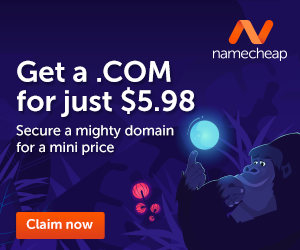Here’s the blog post created from the outline using the specified HTML elements:
What is Content Marketing?
Content marketing is a strategic approach focused on creating and distributing valuable, relevant, and consistent content to attract and retain a clearly defined audience. At its core, content marketing aims to drive profitable customer action by providing information that educates, entertains, or solves problems for the target audience.
Types of content marketing include:
- Blog posts
- Videos
- Podcasts
- Infographics
- Ebooks
- Social media content
The primary goals of content marketing are to increase brand awareness, establish thought leadership, generate leads, and nurture customer relationships. Successful content marketing campaigns, like Red Bull’s extreme sports content or HubSpot’s comprehensive marketing resources, have shown that providing value to your audience can significantly boost brand loyalty and drive business growth.
Understanding Traditional Marketing
Traditional marketing refers to conventional advertising methods that have been used for decades to reach consumers. These methods typically involve a one-way communication approach, where businesses broadcast their messages to a wide audience.
Common traditional marketing channels include:
- Television advertisements
- Radio spots
- Print ads (newspapers, magazines)
- Billboards
- Direct mail
The main objectives of traditional marketing are to increase brand awareness, drive immediate sales, and create a strong brand image. Iconic traditional marketing campaigns, such as Nike’s “Just Do It” or Coca-Cola’s holiday advertisements, have left lasting impressions on consumers and shaped brand perceptions for generations.
Audience Targeting and Engagement
Content marketing excels in targeting specific audience segments with tailored messages. By creating content that addresses the unique needs, interests, and pain points of particular groups, businesses can foster deeper connections with their audience. This targeted approach often leads to higher engagement levels, as consumers find the content more relevant and valuable to their lives.
In contrast, traditional marketing typically adopts a broader audience approach, casting a wide net to reach as many potential customers as possible. While this method can be effective for building general brand awareness, it may not resonate as deeply with individual consumers. The personalization capabilities of content marketing allow for more nuanced and effective audience targeting compared to the often one-size-fits-all approach of traditional marketing.
Cost-Effectiveness and ROI
When it comes to cost-effectiveness, content marketing often has the edge over traditional marketing. While the initial investment in creating high-quality content can be significant, the long-term value and compounding effects of content marketing can lead to substantial returns over time. As content continues to attract and engage audiences, it can generate leads and conversions long after its initial publication.
Traditional marketing, on the other hand, typically requires ongoing investment to maintain visibility and impact. However, it’s worth noting that traditional marketing can sometimes produce quicker, more immediate results in terms of brand awareness and short-term sales boosts.
Measuring and tracking results is generally easier with content marketing, thanks to digital analytics tools that provide detailed insights into audience behavior and engagement. This data-driven approach allows for more accurate calculation of ROI and enables marketers to refine their strategies based on performance metrics.
Trust-Building and Brand Loyalty
Content marketing has a unique ability to build authority and credibility for a brand. By consistently providing valuable information and insights, businesses can position themselves as trusted experts in their field. This trust-building process often leads to stronger customer relationships and increased brand loyalty over time.
Traditional marketing, while effective at creating brand awareness, may not always foster the same level of trust and loyalty. However, it can be powerful in shaping brand perceptions and creating emotional connections through storytelling in advertisements.
Both approaches can leverage storytelling to connect with audiences, but content marketing often allows for more in-depth and ongoing narratives that can resonate deeply with consumers.
Flexibility and Adaptability
One of the key advantages of content marketing is its agility in responding to market changes. Content can be quickly created, published, and adjusted based on current trends, audience feedback, or shifts in the business landscape. This flexibility allows marketers to stay relevant and responsive to their audience’s needs.
Traditional marketing often requires longer planning and execution timelines, making it less adaptable to rapid changes. However, it can be highly effective for long-term brand building and maintaining consistent messaging across various channels.
Content marketing also offers greater opportunities for testing and iterating marketing messages. A/B testing, audience segmentation, and real-time analytics allow marketers to continuously refine their approach for maximum impact.
Integration of Digital Technologies
Content marketing is inherently tied to digital platforms, leveraging websites, social media, email marketing, and other online channels to distribute and promote content. This digital-first approach allows for sophisticated targeting, personalization, and data collection capabilities.
While traditional marketing has historically been less reliant on digital technologies, many traditional methods are now incorporating digital elements. For example, TV ads may direct viewers to websites or social media accounts, and print ads might include QR codes for additional online content.
The role of AI and automation is increasingly important in both content and traditional marketing. In content marketing, AI can help with content creation, personalization, and distribution optimization. In traditional marketing, AI is being used to optimize ad placements, analyze consumer behavior, and improve targeting in programmatic advertising.









Comments (2849)